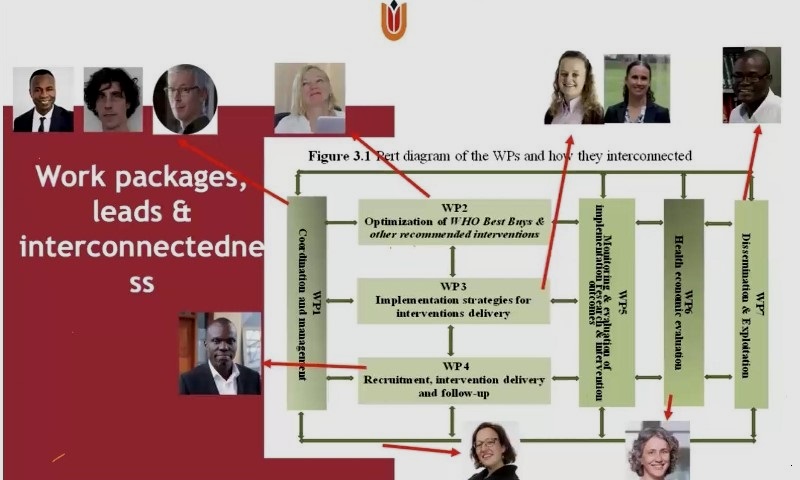The Generation-H Project and the African Food Environment Research Network (FERN) are key initiatives working to address the social and environmental determinants of non-communicable diseases (NCDs) across Africa, hosted a webinar on 14th March 2025, focusing on transforming food and physical activity environments for adolescents in Ghana and Kenya. The session brought together 140 participants, including policymakers, researchers, and public health practitioners, to explore multi-component interventions aimed at tackling unhealthy diets and physical inactivity among adolescents in Urban Sub Saharan Africa.
Prof. Amos Laar, Generation-H Ghana Lead, opened the session by introducing the project’s objectives and its alignment with WHO’s Best Buys strategies. Key presentations followed, with Prof. Charles Agyemang presented the burden of non-communicable diseases (NCDs) and the need for adolescent-focused interventions. Prof. Michelle Holdsworth discussed adapting WHO interventions through co-creation with stakeholders, while Prof. Lauren Sherer and Milka Njeri elaborated on implementation strategies using theoretical frameworks like CFIR and RE-AIM. Dr. Gershim Asiki presented the study design, outlining baseline assessments and evaluation methods, and Dr. Antonio Armando from WHO emphasized the economic impact of NCDs and WHO’s strategies for prevention.
The session concluded with an interactive discussion, reinforcing the importance of multi-sectoral collaboration in addressing adolescent health challenges.
Overall, the webinar successfully introduced the Generation-H project, engaged key stakeholders, and laid the foundation for ongoing partnerships to promote healthier environments for adolescents in Africa.
Watch the full webinar here: Generation-H Webinar






